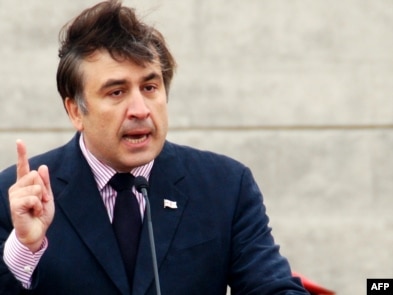Turkey Welcomes NATO-Russia Military Cooperation
These declarations for improving security cooperation aside, in concrete terms, the meeting served as an important test for whether the divisions created following the Russo-Georgian war could be overcome. The NATO-Russia dialogue received a serious blow due to increased tension after the war. Since then, Russia has expected the West to accept the “new realities” in the region, particularly the independence of the breakaway Georgian regions. Moreover, Russian President Dmitry Medvedev has called for a treaty to launch a new Europe-wide security structure.
Although NATO-Russia relations thawed gradually after Obama’s election, formal military cooperation remained suspended. The NATO-Russia Council met on the margins of the OSCE’s Corfu meeting, which marked the highest level contact since the Georgian war. The outgoing NATO Secretary-General Jaap de Hoop Scheffer announced that the parties agreed to resume military cooperation, but noted that “fundamental differences of opinion” over Georgia remained. He added that the details of the cooperation will be fleshed out through further meetings. Russian Foreign Minister Sergei Lavrov, however, stressed that Moscow’s decision to recognize Georgia’s two breakaway regions of Abkhazia and South Ossetia after the war is “irreversible” (www.rferl.org, June 27; www.greeknews.com, June 29).
Davutoglu attended the OSCE discussions, and held several bilateral meetings with his counterparts and E.U. officials. Davutoglu expressed Turkey’s satisfaction with the resumption of NATO-Russia dialogue and the OSCE’s decision to develop mechanisms to deal with future security threats. He added that maintaining institutional ties is needed for the promotion of effective security cooperation (Cihan, June 29).
Turkey’s bilateral relations with Armenia and Greece were also on Davutoglu’s agenda. Diplomatic observers speculated on whether Davutoglu would meet the Armenian Foreign Minister Edward Nalbandyan. Although former Foreign Minister Ali Babacan met Nalbandyan several times during such multilateral meetings, Davutoglu has not held an official meeting with him since being appointed. He told reporters that he talked briefly with Nalbandyan, but his busy schedule did not allow time for an official meeting. Nonetheless, the Turkish-Armenian normalization process occupied an important part of Davutoglu’s agenda during his other contacts. He met the Swiss Foreign Minister Micheline Calmy Rey who is moderating the secret talks between Ankara and Yerevan, which resulted in the announcement of a roadmap for normalization (EDM, April 29). Rey also held a separate meeting with Nalbandyan. Since the announcement of the roadmap, however, Ankara has come under criticism for stalling the process in order to allay Baku’s concerns, and no concrete steps have since been taken towards normalization. Although this long silence raised fears that the dialogue might have prematurely ended, Swiss diplomatic sources reportedly told the Turkish daily Zaman that the parties had reached consensus, and the details of the roadmap might be announced soon (Zaman, June 29).
Davutoglu also met his Greek counterpart Bakoyanni. Following the meeting, Davutoglu said that they had a very fruitful conversation and that the two sides agreed to “change Turkish-Greek relations from an area of risk into pursuing mutual interests through high-level contacts.” However, he added that differences of opinion between both countries remain deep rooted and cannot be resolved overnight. “It is essential that the parties appreciate each other’s positions and concerns,” he added (www.cnnturk.com, June 28). Greek media interpreted his attitude as maintaining Ankara’s stubborn position, and claimed that no common ground could be reached (Milliyet, June 29). Indeed, despite their ability to break the decades-old security dilemma, several issues continue to bedevil relations between Ankara and Athens, such as the Aegean disputes, Cyprus, concerns over illegal immigrants and the condition of minorities (EDM, June 22).
Given its policy during the Russia-Georgia war and its flourishing ties with Russia, one might argue that Turkey is one of the few countries that wholeheartedly welcomed the resumption of NATO-Russia cooperation. Though disturbed by the Russian aggression last year, Turkey expressed openly its opposition to punitive NATO measures against Russia, and instead charted an independent course to balance its ties between the West and Moscow. This foreign policy approach even led to charges that Turkey might be drifting away from its traditional alliance commitments, which it vehemently refuted (EDM, August 27, 2008). Moreover, Turkey initiated the Caucasus Stability and Cooperation Platform to bring a permanent solution to regional problems (EDM, September 2, 2008). Now that Russia and Turkey are seeking to mend fences, this new development removes an important source of tension in Ankara’s relations with the West.
Moreover, in retrospect, Ankara might claim credit for its own policy of balancing and prioritizing its multidimensional security cooperation, during and in the aftermath of the Georgian crisis. Ankara’s new foreign policy approach prioritizes cooperative security to respond to traditional and non-conventional threats to regional and national security, an approach which is also shared by its military leadership (EDM, June 25). However, as the persistence of some disputes with its neighbors illustrate, it provides no magic bullet for the resolution of all disputes.







